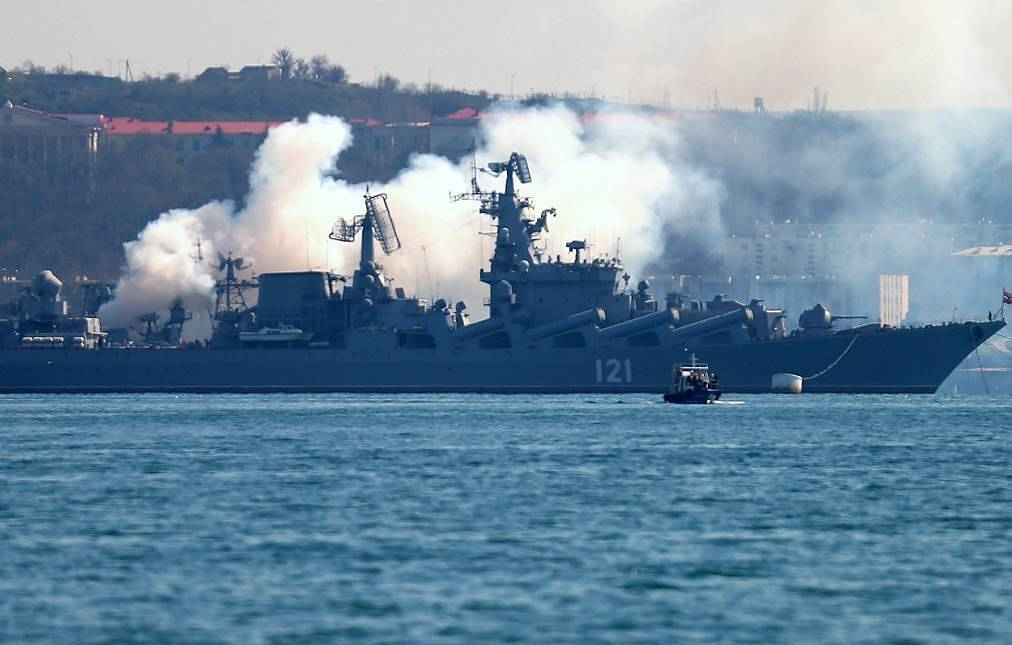
In November 2020, Russia and Egypt conducted their first joint naval exercises in the Black Sea. The Bridge of Friendship-2020 naval drills brought the Egyptian Navy to the Black Sea for the first time (PortNews.ru, November 16, 2020). Along with expanding military cooperation with Cairo, Moscow also planned the event as a message to Turkey to curb its ambitions in the Middle East after Ankara’s involvement in conflicts in Syria and Libya.
During the Cold War, Egypt was the most precious diamante for Moscow in the Middle East. But it was lost after the death of President Gamal Abdel Nasser and the Yum Kippur War in 1973, followed by the Camp David Accords in 1978. Moscow was forced to contend with having Syria and Libya, two marginal regimes in the Middle East, as allies. In the last decade, the situation significantly changed due to the geopolitical events in 2011, including the Arab Spring and its implications for the region. The events in Libya pushed Egypt to seek cooperation with powerful international actors, particularly in closer military cooperation with Moscow. This evolving cooperation’s political culmination was the Russia-Africa Summit in Sochi in October 2019, where Egyptian President Abdel el-Sisi served as the summit’s co-president (Kremlin.ru October 24, 2019).
Egypt’s current military collaboration with Russia is not yet comparable to the one it had with the Soviet Union during the Cold War, but the trends for Moscow are promising. The first joint naval exercises in the Black Sea in November 2020 were unprecedented, as this was the first time the Egyptian Navy entered the Black Sea. The drills were part of Russia’s response to Turkey’s robust involvement in the Libyan civil war at the beginning of 2020. Moscow, which has been supporting the opposing side in Libya’s conflict since 2017, initially stepped back to try and portray Turkey as a regional revisionist power and trigger a defensive reaction among regional powers, especially as Egypt felt endangered by Turkish successes in Libya. Historically, Egypt needed the Soviet Union to eliminate the Middle East’s colonial system in the 1950s. Now Cairo is expecting Moscow to be a regional factor against any hegemonism in the region.
Ankara considers Egyptian warships’ passage through the Bosporus strait as a symbolically important event as it has never happened before. The last time Egypt threatened the Ottoman Empire was in the 19th century, during the wars in 1831–1833 and 1839–1841. As retired Turkish naval staff colonel Mehmet Asal commented, since 2014, the Egyptian Navy has changed significantly. The fact that Egyptian warships can now reach Novorossiysk from Alexandria (1,367 miles) is impressive and a signal to Ankara to pay more attention to Egypt’s assertiveness (Denizkartali.com, November 28, 2020).
The Russian media commented that the Black Sea drills would have a sobering effect on some “hotheads” in Turkey, who are dreaming about imperial ambitions, as evident during Ankara’s successful attempt to increase its influence in the South Caucasus during the Karabakh war last fall (RG.ru, November 16, 2020). It was the second message from Cairo to Ankara, after the deployment of several hundred soldiers to northern Syria in July 2020.
The Bridge of Friendship-2020 naval exercises in the Black Sea followed previous joint drills in the Mediterranean Sea in June 2015, geared to respond to threats that might arise in that area (Function.mil.ru, June 6, 2015; RIA.ru, June 9, 2015). In October 2016, Russian paratroopers and Egyptian special forces conducted joint anti-terrorist exercises Defenders of Friendship 2016 with more than 500 military personnel (200 from Russia) in the Egyptian desert near Alexandria (TV Zvezda, October 18, 2016).
In September 2017, at the Russian Airborne Forces (VDV) base in the Kuban, Egypt and Russia conducted joint exercises with the participation of 600 paratroopers (Tvkrasnodar.ru, September 17, 2017). General Nasser Salem from the Nasser Military Academy stated that it was the first time such exercises were held since the President Anwar Sadat era. It was only possible to resume this level of collaboration under the current Egyptian president (Al-ain.com, October 14, 2017). The deterioration of Egypt’s relations with Turkey occurred right after the coup d’état in July 2013 and the subsequent ban on the Muslim Brotherhood (Ikhwan). Additionally, in November 2017, Moscow and Cairo signed an arms agreement for more than $3 billion (Kommersant.ru, May 29, 2017).
In October 2018, Egypt hosted anti-terrorist exercises with the Airborne Assault Caucasian Cossack Regiment (more than 200 personnel) from Stavropol, Russia, participating (RG.ru, October 15, 2018). One year later, Russia’s Minister of Defense Sergei Shoigu visited Cairo, during which he called Egypt a strategic ally for Russia in the Middle East (Redstar.ru, November 13, 2019). Shoygu had legal grounds for this statement, as Cairo and Moscow signed a Treaty on Comprehensive Partnership and Strategic Cooperation in 2018.
In 2019, the Russian air force deployed one hundred anti-aircraft gunners from the Southern Military District to Egypt for the Arrow of Friendship-2019 exercises (Tvzvezda.ru, October 26, 2019). The drills focused on developing methods of destroying air targets by the air defense systems Buk-M2E, Tor-M2E, Shilka-M4 and Igla-S.
Moscow is trying to balance between Cairo and Ankara and simultaneously avoid deep entanglement with any particular power. Egypt is the only country that has an economy comparable to that of Turkey and sufficient political and military might. Historically, only Egypt as an indigenous regional power was able to challenge Turkey in the Levant, but the direct intervention of Russia and several Western powers prevented an Ottoman retreat. Cairo and Ankara continue to compete for leadership in the region. Russia would like to see some sort of regional multipolarity and views Egypt as a useful tool for balancing Turkish ambitions.
 Eurasia Press & News
Eurasia Press & News


